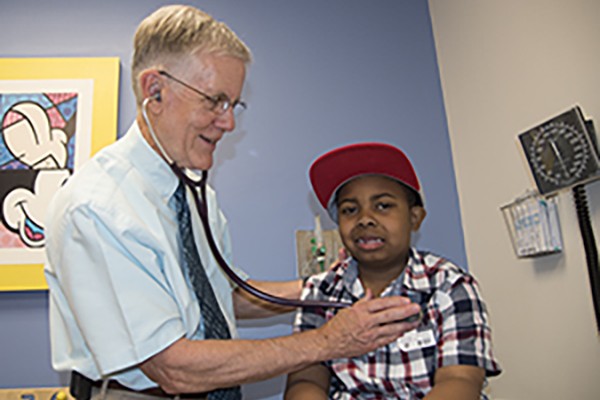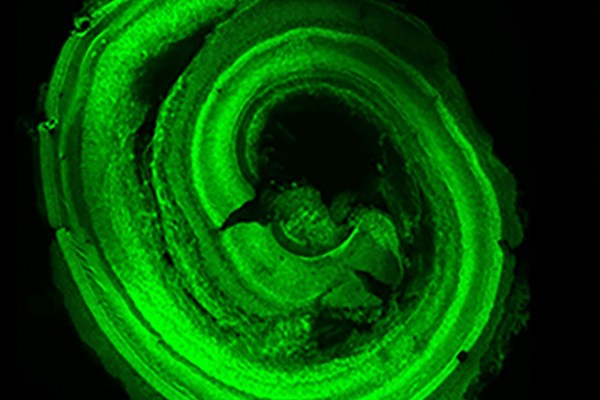Buchman named new head of otolaryngology
Craig A. Buchman, MD, a nationally recognized leader in otolaryngology and head and neck surgery, has been named head of the Department of Otolaryngology at the School of Medicine. He replaces Richard A. Chole, MD, PhD, who, after leading the department for 17 years, is stepping down to focus on research and patient care.
Study reveals new, potent way to boost immunity and fight viruses
Studying mice with a variety of viral infections, scientists at the School of Medicine have demonstrated a way to dial up the body’s innate immune defenses while simultaneously attacking a protein that many viruses rely on to replicate. The findings reveal previously unknown weapons in the body’s antiviral immune arsenal and provide guidelines for designing drugs that could be effective against a broad range of viruses.
In kids, young adults with asthma, pay attention to weight gain
Following patients from childhood into young adulthood, a study led by Robert Strunk, MD, at Washington University School of Medicine in St. Louis shows the progression toward worse lung function in those who become obese as they grow into young adulthood.
Mimicking diet changes of global travel reveals clues to gut health
With the growing understanding of the importance of gut bacteria in human health, researchers at the School of Medicine studied gut motility, measuring the transit time of food moving through the gastrointestinal tract in mice in a way that mimicked the dietary effects of world travel. The study demonstrates ways to uncover how even a single ingredient, such as turmeric, can affect health through interactions of diet and gut microbes.
Beet juice boosts muscle power in heart patients
Building on a growing body of work that suggests dietary nitrate improves muscle performance in many elite athletes, researchers at Washington University School of Medicine in St. Louis found that drinking concentrated beet juice — high in nitrates — increases muscle power in patients with heart failure.
Viruses flourish in guts of healthy babies
Bacteria aren’t the only non-human invaders to colonize the gut shortly after a baby’s birth. Viruses also set up house there, according to new research led by Lori Holtz, MD, at Washington University School of Medicine in St. Louis.
Quitting smoking after heart attack gives quick boost to mental health, quality of life
A new study shows that quitting smoking after a heart attack has immediate benefits, including less chest pain, better quality of daily life and improved mental health. Many of these improvements became apparent as little as one month after quitting and are more pronounced after one year, according to the research led by Sharon Cresci, MD, at the School of Medicine.
Mann named editor-in-chief of new cardiology journal
The American College of Cardiology has named Douglas L. Mann, MD, of Washington University School of Medicine the first editor-in-chief of its newest journal, JACC: Basic Translational Research. A monthly, open-access publication, the new journal will launch its inaugural issue in December.
Diagnostic test developed for enterovirus D68
Researchers led by Gregory Storch, MD, have developed a diagnostic test to quickly detect enterovirus D68 (EV-D68), a respiratory virus that caused unusually severe illness in children last summer and fall. The outbreak caused infections at an unprecedented rate, with over 1,000 confirmed cases and 14 reported deaths nationwide, according to the Centers for Disease Control and Prevention.
New findings hint toward reversing hearing loss
Studying mice, scientists at Washington University School of Medicine in St. Louis have identified two signaling molecules that are required for the proper development of a part of the inner ear called the cochlea. The study contributes to the understanding of inner ear development, a first step toward the goal of being able to recover lost hearing.
View More Stories



